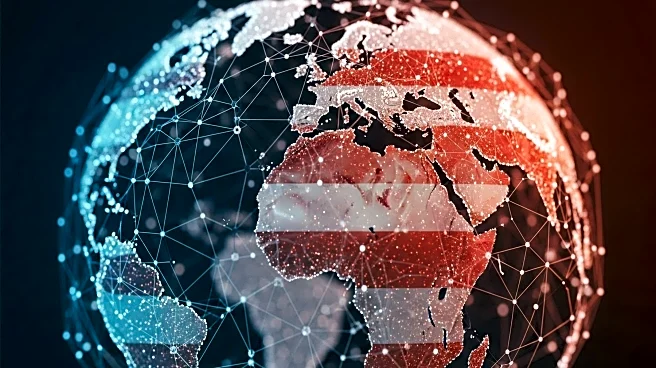What is the story about?
What's Happening?
The Trump administration has announced a significant increase in the annual fee for H-1B visas, raising it to $100,000. This move is expected to affect Indian IT professionals and companies that heavily rely on these visas. The H-1B visa program, which allows U.S. employers to hire foreign workers in specialized fields, has been a critical pathway for Indian tech talent. The fee increase comes amid a challenging business environment for the Indian IT sector, which is already dealing with macroeconomic uncertainties and geopolitical tensions. The new fee structure is part of a broader strategy to encourage the hiring and training of local talent in the U.S., potentially leading to a more localized workforce.
Why It's Important?
The imposition of a $100,000 fee on H-1B visas could have far-reaching implications for the U.S. and Indian IT industries. For Indian companies, this fee hike may lead to increased operational costs and force a reevaluation of hiring strategies and business models. Companies that rely heavily on H-1B visas might lose their competitive edge, potentially impacting their global delivery models. On the U.S. side, the decision could affect the tech industry's growth and innovation, as it heavily depends on global talent. The move may also lead to increased competition from other countries with more attractive visa policies, potentially diverting talent away from the U.S.
What's Next?
The proclamation's impact will depend on how it is received by business associations and the tech industry. Indian IT firms may need to reassess their global strategies, possibly shifting operations to countries with more favorable visa policies. The U.S. tech industry might face challenges in maintaining its competitive edge if it cannot attract top global talent. Additionally, the legislative threat of the HIRE Act, which aims to curb outsourcing, could further complicate the landscape for foreign workers and companies relying on them.
Beyond the Headlines
The ethical and economic implications of this policy change are significant. While the intention is to protect American jobs, the move could inadvertently stifle innovation and growth in the U.S. tech sector. It raises questions about the balance between protecting domestic employment and fostering an environment conducive to technological advancement and global competitiveness.

















